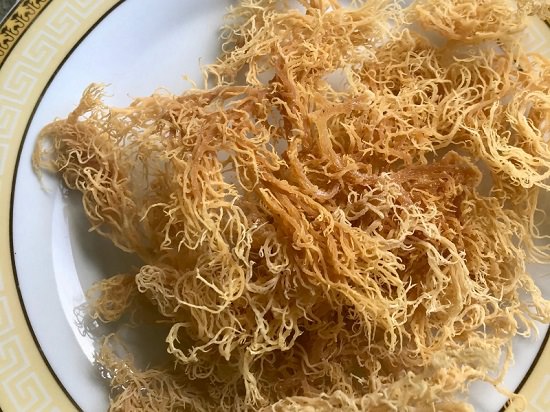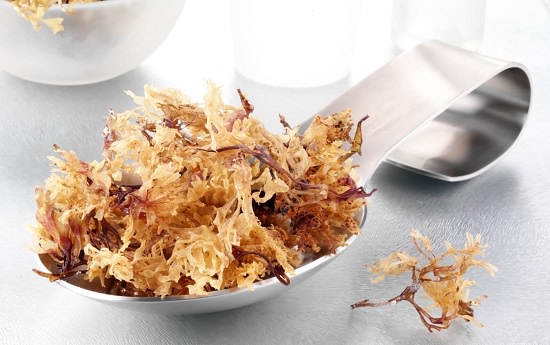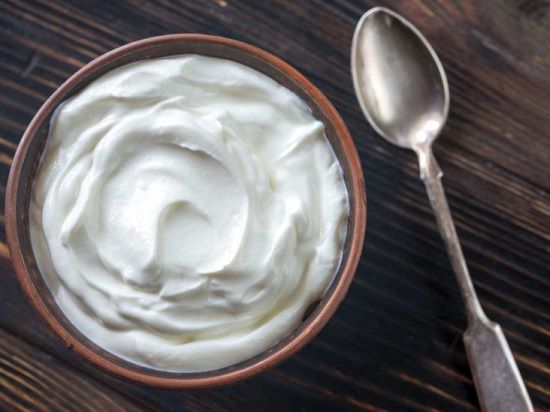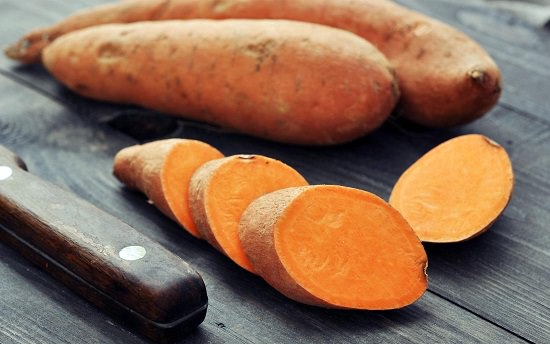Sea moss is a type of seaweed that grows in the ocean. Let us explore whether you can take sea moss while the breastfeeding phase or not!
When a mother is pregnant or in her breastfeeding phase, she needs to be very careful and extremely cautious about what to eat and what not. Let us look into whether or not is it safe to take sea moss during your breastfeeding phase!
What Exactly Is Sea Moss?
Sea moss is a type of seaweed that grows in the ocean. It has a wide variety of uses including, food, medicine, and source of nutrients, among other things. Sea moss is high in minerals such as magnesium, potassium, and calcium, and it’s a good source of vitamins A, C, and E as well. It can be used in soups, stews, and smoothies, and it can be consumed fresh or dry. In this article, you’ll learn whether or not is it safe to be eating sea moss while breastfeeding.
Why Is Sea Moss Good for You?
Sea moss is a wonderful source of minerals and has certain health-promoting characteristics. Here are a few reasons why sea moss is beneficial to your health:
- Anti-inflammatory properties of sea moss can aid the reduction of inflammation in the body.
- It can help improve digestion and regulate bowel movements.
- It’s also rich in dietary fiber, which might help you stay regular.
Is It Safe to Eat Sea Moss While Breastfeeding?
Since, there hasn’t been much research done on the safety of consumption of sea moss while breastfeeding, therefore, it is difficult to determine for sure. However, as a general rule, it is usually safe to consume most types of herbs and supplements while breastfeeding. That said, before starting a new supplement while breastfeeding, it’s always a good idea and advisable to consult healthcare experts.
Perks of Using Sea Moss While Breastfeeding
Sea moss can facilitate the production of milk in nursing mothers. It is a natural galactagogue, which means it helps to assist and stimulate the production of breast milk. Adding sea moss to your everyday diet can help to ensure that you are getting enough nutrients to support lactation.
How To Include Sea Moss In Your Daily Diet While Breastfeeding?
Adding sea moss to your daily diet while breastfeeding is an excellent way to ensure you and your baby are getting the nutrients you need. Sea moss is abundant in iodine, which is essential for proper thyroid function. It is a good source of calcium, magnesium, and potassium as well. All of these nutrients are crucial for both you and your baby.
Here are a few ways to add sea moss to your diet while breastfeeding:
1. Add sea moss to your smoothie
- For breakfast: Blend 1 cup of fresh spinach, 1 banana, ½ cup of almond milk, and 1 tablespoon of sea moss.
- For lunch: Blend 1 cup of fresh strawberries, 1 banana, ½ cup of yogurt, and 1 tablespoon of sea moss.
2. Mix it into oatmeal or cereal
Add 1 tablespoon of sea moss to your oatmeal or cereal before cooking.
3. Make a soup
Add 1 cup of chopped celery, 2 cups of vegetable broth, and 1 tablespoon of sea moss to a pot on the stove. Bring to a boil and simmer for 10 minutes. After that, you can consume the soup fresh and hot!
4. Salad
Toss 1 cup of mixed greens, 1 diced tomato, and 1 tablespoon of sea moss together in a bowl to make a healthy salad. You can eat it at any time of the day as it will keep you full as well as is a healthy snack.
5. Standalone Snack
Eat 1-2 tablespoons of sea moss as a snack any time of the day.
There are a variety of methods to incorporate sea moss into your breastfeeding diet, so explore further to see what works best for you and your baby. With all of the minerals, sea moss is an excellent way to guarantee that, both you and your baby get the requisite nourishment during this phase.
Potential Side Effects Of Sea Moss Consumption While Breastfeeding
Although sea moss is a safe and healthy food to eat while breastfeeding, it is always best to speak with your health care provider before consuming any new food while breastfeeding. Some possible side effects of sea moss while breastfeeding includes constipation and diarrhea. If you experience any negative reaction after consuming sea moss, discontinue use and speak with your healthcare professional.
Alternatives Of Sea Moss While Breastfeeding
As a breastfeeding mom, you have to be careful with the food you eat. Some foods are safe to eat while breastfeeding, and there are others that you must avoid. Some of the alternatives of sea moss during breastfeeding include:
1. Yogurt
Yogurt is a healthy and delicious alternative to sea moss. It is packed with nutrients that are beneficial for both you and your baby. Yogurt is a good source of calcium, protein, and probiotics, which can help keep your gut healthy.
2. Cheese
Cheese is another great alternative to sea moss. It is high in protein and calcium, and it contains probiotics as well.
3. Milk
Milk is a good source of calcium and protein, both of which are important for breastfeeding moms. Be sure to choose organic milk if possible, as it contains more nutrients than conventional milk.
4. Leafy Greens
Leafy greens are packed with nutrients, including calcium, vitamin C, and vitamin K. They are a healthy and nutritious alternative to sea moss.
5. Salmon
Salmon is a good source of omega-3 fatty acids, which are beneficial for both mom and baby. It is also high in protein and vitamin D.
6. Eggs
Eggs are a great source of protein, vitamin D, and choline. Choline is important for brain development in infants. You can eat 2 eggs thrice a week to get all the benefits.
7. Berries
Berries are a good source of antioxidants and vitamins C and E. Besides, they contain an ample amount of fiber that will ensure that your gut remains healthy throughout.
8. Sweet Potatoes
Sweet potatoes contain beta-carotene, vitamin A, and vitamin C. They are also a good source of fiber that helps in maintaining gut health.
9. Avocados
Avocados consist of healthy fats, vitamin E, potassium, and dietary fibers.
10. Quinoa
Quinoa is a high-quality protein source that contains a good quantity of magnesium, potassium, and zinc.
These are just a few of the many healthy alternatives to sea moss during breastfeeding. Be sure to mix and match all the aforementioned things so that you have a variety in what you eat.
Other Things You Should Avoid Consuming While Breastfeeding
- Caffeine: Caffeine passes into breast milk and can cause fussiness and jitters in infants.
- Alcohol: Alcohol can cause increased drowsiness and decreased milk production in nursing mothers.
- Nicotine: Nicotine from cigarettes or electronic cigarettes can reduce milk production and cause developmental problems in infants.
- Fish high in mercury: Mercury can harm the developing nervous system of a breastfeeding baby.
- Raw meat: Raw meat can contain harmful bacteria that can cause illness in both the mother and baby.
- Unpasteurized milk: Unpasteurized milk can contain harmful bacteria that can cause illness in both the mother and baby.
If you are unsure about whether a certain food is safe to eat while breastfeeding or not, it never hurts to avoid it until you can speak with your healthcare provider.
Final Takeaway
Sea moss contains minerals that are beneficial to both pregnant and nursing mothers. On the other hand, excessive amounts of most mineral deposits in your body cause health concerns for you and your baby, therefore, massive doses of any food should be avoided in general.





